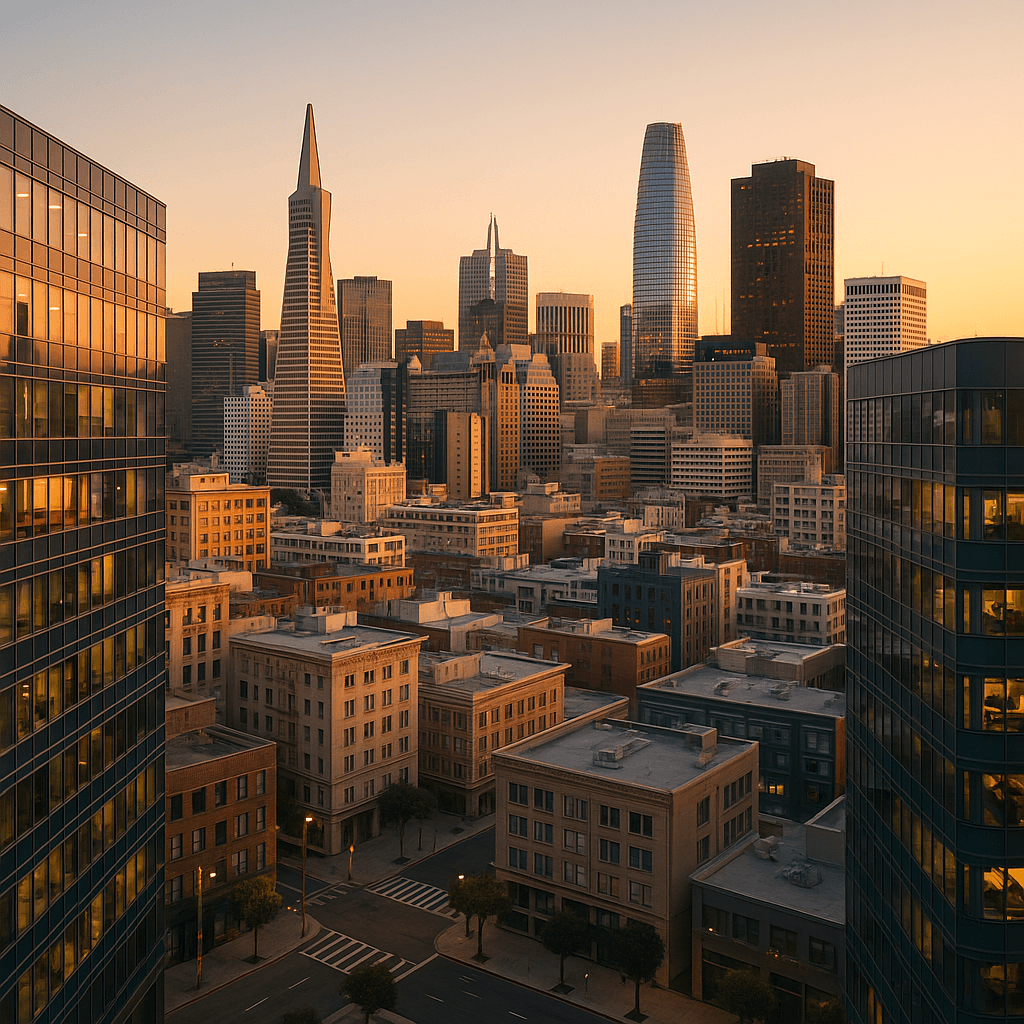President Trump is doubling down on National Guard deployment threats to San Francisco just as the city hits a post-pandemic high, powered by a massive AI investment surge. The timing couldn't be more awkward - crime is down 30%, homicides at 70-year lows, and venture capital is pouring $115 billion into Bay Area AI startups this year alone.
The political theater is playing out against San Francisco's strongest economic backdrop in years. Salesforce CEO Marc Benioff found himself at the center of controversy last week when he told the New York Times he'd support Trump's federal troop deployment. The comment came just as his company was hosting its largest Dreamforce conference ever, drawing thousands to a city Trump claims needs military intervention. By Friday, facing mounting criticism from locals, Benioff was walking it back completely. "Having listened closely to my fellow San Franciscans and our local officials, and after the largest and safest Dreamforce in our history, I do not believe the National Guard is needed," he posted on X. The flip-flop highlights how out of step the federal intervention narrative is with what's actually happening on the ground. New CBRE data shows venture capital funding in 2025 is expected to surpass the record $276 billion hit in 2021. The bulk of that investment - a staggering $115 billion through Q3 - has flooded San Francisco and Silicon Valley, with 80% targeting AI ventures. By September's end, the Bay Area was already 35% above its previous annual investment peak. The AI boom is reshaping the city's entire economic landscape. Tech companies grabbed 53% of commercial leasing activity in 2025, the highest share since 2019, according to CBRE. Apartment rents surged 6% in August - double Chicago's 3.75% jump, which ranked second nationally. "Housing is probably as cheap as it's going to get for a while," Ted Egan, San Francisco's chief economist, told CNBC. The crime data tells an even starker story. Homicides hit their lowest levels in 70 years, car break-ins haven't been this low in 22 years, and overall crime dropped 30% from 2024. Mayor Daniel Lurie, who took a notably less combative approach to Trump than predecessor London Breed, has been celebrating the turnaround. "San Franciscans are feeling positive about the direction of our city once again," Lurie said in a statement released through Governor Newsom's office. Tourism is rebounding too. The San Francisco Travel Association projects spending will hit $9.35 billion this year, up from $9.26 billion in 2024. Conferences, NBA All-Star weekend, and festivals like Outside Lands are driving the growth. Trump's deployment threats feel increasingly disconnected from this reality. He's already sent National Guard troops to Chicago and Portland, triggering protests and legal challenges. Over the weekend, he told Fox News' Maria Bartiromo that "the difference is I think they want us in San Francisco" - a claim that Lurie firmly rejected Monday evening. "The National Guard does not have the authority to arrest drug dealers, and sending them to San Francisco will do nothing to get fentanyl off the streets or make our city safer," the mayor said. The political drama has exposed interesting fault lines in tech leadership. and Trump advisor David Sacks publicly backed Benioff's initial comments, highlighting how some high-profile tech figures with Trump administration ties view the city differently than locals. But the broader tech community seems aligned with the recovery narrative. The real estate numbers don't lie - office vacancies remain elevated at 33.6%, but that's rapidly improving as companies expand their footprints. The downtown shopping district still has major gaps, including the shuttered flagship Nordstrom that left San Francisco City Centre essentially empty. Homelessness and drug use remain concentrated in certain neighborhoods. Still, longtime residents like Egan notice the shift. "It seems cleaner and safer now than it's ever been in any of the time that I've been here," said the economist, who's worked in San Francisco for over 20 years. "I still think it's a great place to move to because it's got tons of economic opportunity."












